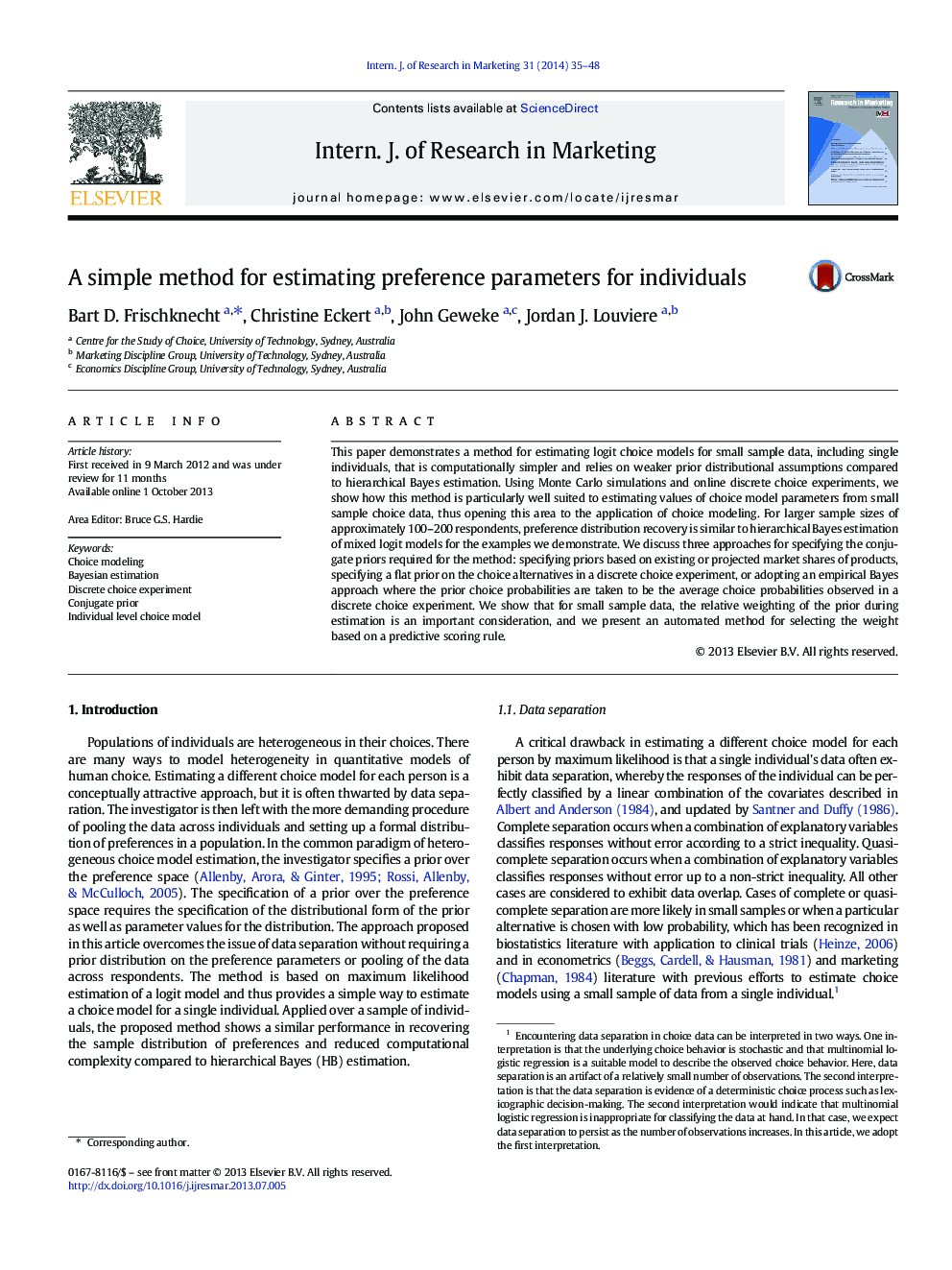| Article ID | Journal | Published Year | Pages | File Type |
|---|---|---|---|---|
| 880166 | International Journal of Research in Marketing | 2014 | 14 Pages |
•We propose a modified maximum-likelihood-approach to estimate choice models.•Beliefs on choice shares rather than parameters are used as priors for estimation.•The method can be implemented in most standard choice modelling software.•The method enables discrete choice model estimation for very small sample sizes.•Performance of the method is demonstrated on simulated and real world data.
This paper demonstrates a method for estimating logit choice models for small sample data, including single individuals, that is computationally simpler and relies on weaker prior distributional assumptions compared to hierarchical Bayes estimation. Using Monte Carlo simulations and online discrete choice experiments, we show how this method is particularly well suited to estimating values of choice model parameters from small sample choice data, thus opening this area to the application of choice modeling. For larger sample sizes of approximately 100–200 respondents, preference distribution recovery is similar to hierarchical Bayes estimation of mixed logit models for the examples we demonstrate. We discuss three approaches for specifying the conjugate priors required for the method: specifying priors based on existing or projected market shares of products, specifying a flat prior on the choice alternatives in a discrete choice experiment, or adopting an empirical Bayes approach where the prior choice probabilities are taken to be the average choice probabilities observed in a discrete choice experiment. We show that for small sample data, the relative weighting of the prior during estimation is an important consideration, and we present an automated method for selecting the weight based on a predictive scoring rule.
